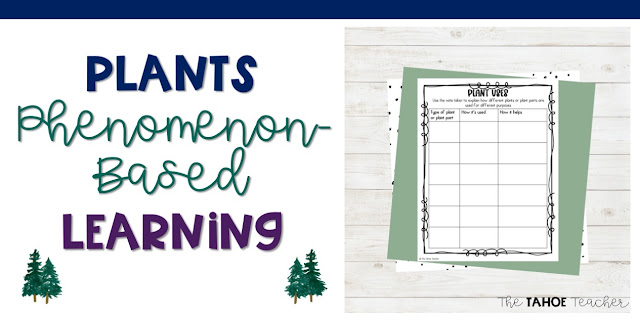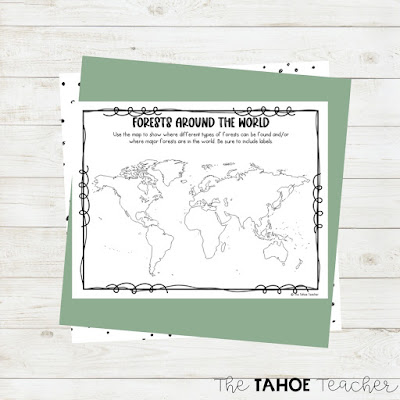Plants Phenomenon-Based Learning
Hey, y'all. Have you tried Phenomenon-Based Learning yet? If you've followed the blog for awhile, you've probably heard me mention it a time or six. That's because it's amazing!
PhenomBL is an instructional strategy used in Finland to integrate subjects and make learning connected across the curriculum. Students are given a topic like weather, plants, civil rights, or WWII and explore the topic in each subject area. But, it's much deeper than a simple thematic unit!
First, for some background info, you can grab this informational freebie from by TPT store. It has all the basics of what PhenomBL is about and what it entails. PhenomBL is largely student-centered and directed.
The first unit in this series is all about the weather. Students dive into how weather affects people, animals, and plants. The second unit in this series is this plant unit.
When you start off a PhenomBL unit, you'll start with an essential question. In this case, the question is "How do people and animals use plants in their daily lives?" You could change your essential question if needed to meet your students' needs, but this is a pretty broad question with lots of opportunities for student exploration. Give students time to formulate their own questions about plants, then the fun begins.
In reading, students could read all about plants--types of plants, how people and animals use plants, types of forests in different regions of the world, deforestation, and research any of the questions on their beginning of the unit brainstorm. This is a great time to integrate fictional and nonfictional texts and help students decipher what they can use as answers to their questions and where to go next for more clues.
In math, students can measure the height of plants and calculate the growth over time. They can compare heights or the diameters of different plants, using area to map out a garden, calculating the rate of deforestation in different areas of the world, calculating the amount of water needed to maintain different crops, and so much more.
In science, students can explore different purposes for different types of plants, how animals use different plants, habitats in different forests, types of forests, deforestation in different parts of the world, how seeds travel, what tree rings mean, and any other number of topics.
For social studies, students can explore how people use plants, how farmers tend to crops, the working conditions of agricultural workers, careers in agriculture, people's role in deforestation, activist groups, strange plant legislation, and more.
The biggest part of PhenomBL is that it is student-centered learning. As teachers, we'll be providing the experience and guiding students in their learning, but the work of learning is largely up to them. Throughout the whole PhenomBL experience, students are asking and answering their own questions. This is not a teacher-directed unit.
Now, you will need to pre-teach some vocabulary, some basics about plants (if you teach upper elementary, students will already have some background knowledge), and some skills on how to do research to answer their questions, but the overall unit is largely student-directed.
The premise behind Phenomenon Based Learning is that students see how all the different subject areas are related when exploring different topics. No matter what topic you're studying, reading, math, science, and social studies are all involved. When students apply the skills they are learning in every subject to one topic, they can see how things are connected in the world. Things start to make sense and dendrites grow all over their brains! Call me a nerd, but it really is fascinating.
You can find out more about this plant PhenomBL framework here or by heading straight to my TPT store. This is the second in this series, so check back frequently for more topics/units of study coming soon.
I hope you have a wonderful week and I'll talk to you soon.
Stay cozy,







No comments
Post a Comment